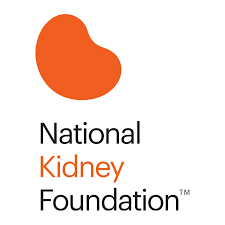“The first two episodes of the show, though, do set up enough side plots and dynamics to suggest that there’s plenty of material to mine going forward. It’s also not hard to see where “B Positive” could sit among the latest slate of CBS multi-cam sitcoms produced by Chuck Lorre, namely “Mom” and “Bob Hearts Abishola.” With settings like Gina’s job at an assisted living facility and Drew’s dialysis group turned frank support group, “B Positive” works to lend more personality and authenticity to what could otherwise be just a basic odd couple show. Should it get the room to go forward, the show would be smart to expand upon those elements that make Gina and Drew seem more human instead of leaning on their wacky differences.”
Read the full review, here.
Kidney Patients Expand Impact as Kidney Voters™ in 2020
“The American Association of Kidney Patients (AAKP), the oldest and largest independent kidney patient organization in the nation, today thanked kidney patient volunteers, their families, and kidney community allies for exercising their influence through voter registration and engagement as self-identified Kidney Voters™ through AAKP’s I Am A Kidney Voter initiative (#KIDNEYVOTER and #IAmAKidneyVoter) in the 2020 election”
“In 2018, AAKP developed and launched the first non-partisan kidney community voter education, registration, and turnout drive that had ever been attempted. In 2019, AAKP launched The Decade of the Kidney™ upon the signing of the White House Executive Order onAdvancing American Kidney Health Initiative. This strategic effort organizes kidney patient consumers nationally and globally to further drive policies that prevent kidney injury and disease, and support greater patient care choice, innovation, and timely access to care and new treatment options. Based on the grassroots tactics and online technologies refined by AAKP in 2018 and 2019, the I Am A Kidney Voter initiative has expanded rapidly to include all sectors of the kidney community, including medical professionals such as nephrologists and transplant surgeons, researchers, and workers across the medical industry and policy-influencers. AAKP estimates that their expanded platforms will engage close to 500,000 Kidney Voters™ by the 2022 election cycle while expanding kidney patient consumer demand for full immunosuppressive drug coverage for transplanted kidneys, new diagnostics to detect kidney disease far in advance of current standards, new biologics and precision medicine to treat and slow kidney disease progression, as well as bioengineered and artificial wearable and implantable kidneys to ease transplant waiting times.”
Read the full press release by AAKP, here.
Kidney Transplant Chain Is A Touching Act of Kindness
“You never know where an act of kindness ends.
Tara Berliski of Magnolia, Texas, offered to donate a kidney to her husband, John Berliski. His were removed in July because of polycystic kidney disease. Doctors at the Houston Methodist Hospital living donor program explained that because John Berliski has type AB blood, he could receive a kidney from almost any donor. But if John and Tara Berliski chose to enter a kidney swap program, they might be able to help someone else, too; someone else might help them.”
Read the full opinion piece, here.
10 Tips to Maintain Long-Term Health After Kidney Transplant
“Receiving a kidney transplant is receiving a second chance at life, or even a third or fourth. But that doesn’t mean the work is done. A common misconception is that a transplant is a cure or fix-all. The reality, however, is that a kidney transplant is just another treatment option. So, while the days of dialysis may be over, patients must remain vigilant as they learn their new daily regimen in order to maintain long-term success with their new gift.”
Read all ten tips, here.
Nationwide Kidney Risk Campaign Relaunches by NKF, HHS, and ASN
“The National Kidney Foundation (NKF) is joining forces with the U.S. Department of Health and Human Services (HHS), the American Society of Nephrology (ASN), and actor, activist and entrepreneur Wilmer Valderrama to reach the 1 in 3 American adults at risk for kidney disease. “Are You the 33%?”is a nationwide public awareness campaign relaunching today timed for Hispanic Heritage Month. The campaign, originally launched in March 2020, was paused due to the national pandemic and will run through March 2021.”
Read the full article, here.
Philly area women appear on ‘Ellen’ after inspiring bond through kidney donation
“Breanna Sipple and Erin Francis were strangers in the Philadelphia area three years ago when a single Facebook post changed both of their lives.
Francis was 24 years old and had just gotten married when she went into kidney failure. She was uneasy about sharing her story and seeking help, but her husband acted as a champion and made a Facebook post in search of an organ donor for Francis.”
Read the full story and watch the video clip, here.
A Kidney International “Journal of the COVID-19 Year” in Kidney Transplantation
“The global COVID-19 pandemic’s impact on kidney transplant recipients and transplantation programs in the calamitous months of February to June 2020, the Northern Hemisphere Spring to Summer, is represented in articles published in the December issue of Kidney International. Writing about another pandemic in the year of 1665 over 300 years ago the author Daniel Defoe describes the same period of time in London and gives a remarkably familiar description of how a pandemic affects populations, including the unproven treatments, epidemiology of infection and human response to restrictions on freedom of city lockdowns that occurred during that time (1). The risks, outcomes, epidemiology and potential treatments for the kidney transplant population worldwide during the past 12 months have been thankfully studied in detail by multiple authors, and form the subject of papers in KI this month”
Read the full article on kidney INTERNATIONAL, here.
Beta-blockers May Reduce Mortality Rate for Patients with Heart, Kidney Failure
For patients with both heart and kidney failure, beta-blocker use was associated with decreased mortality rates within 1 year after dialysis initiation.
According to Hui Zhou, PhD, of the department of research and evaluation at Kaiser Permanente Southern California, and colleagues, beta-blocker therapy is generally thought to be beneficial to patients with chronic kidney disease. However, they contended that less is known about its impact on patients once they progress to end-stage kidney disease and must transition to dialysis.
Read the full article, here.
COVID-19 Infection in Kidney Transplant Recipients at the Epicenter of Pandemics
“Following the first case of coronavirus infectious disease 2019 (COVID-19) in the USA in January 2020, New York quickly became the epicenter of the pandemic in March and April 2020. Initial results from 3 centers in New York reported a high mortality rate of 20%-39% in hospitalized patients 1, 2, 3. Kidney transplant recipients are expected to be at an increased risk of complications from COVID-19 not only due to their chronic immunosuppression but also frequently associated comorbidities including older age, hypertension, diabetes mellitus, chronic kidney disease and cardiovascular disease.”
Read the full study on kidney INTERNATIONAL, here.
6 Easy Ways to Prevent Kidney Stones
“Did you know that one in ten people will have a kidney stone over the course of a lifetime? Recent studies have shown that kidney stone rates are on the rise across the country. Those in the know believe that some major misconceptions may be the culprit.
The National Kidney Foundation has teamed up with Dr. Allan Jhagroo, a kidney stone specialist at the University of Wisconsin School of Medicine and Public Health, to help you stay stone-free by debunking some of the major kidney stone myths and misconceptions.”
Read the full article, here.







